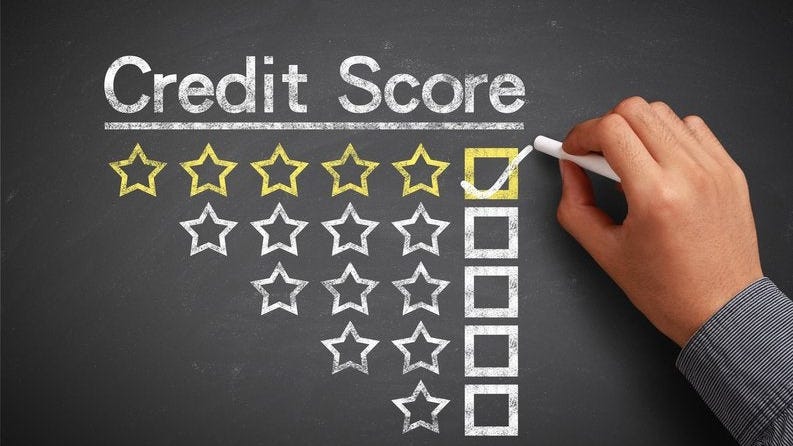[et_pb_section fb_built=”1″ _builder_version=”4.0.9″][et_pb_row _builder_version=”4.0.9″][et_pb_column type=”4_4″ _builder_version=”4.0.9″][et_pb_text _builder_version=”4.0.9″]
If you can’t pay a bill, contact the creditor: How to protect your credit
score during COVID-19
[/et_pb_text][/et_pb_column][/et_pb_row][et_pb_row _builder_version=”4.0.9″][et_pb_column type=”4_4″ _builder_version=”4.0.9″][et_pb_text _builder_version=”4.0.9″]

COVID-19 won’t impact your credit score directly, but it could have an indirect impact because of the economic troubles it has caused. For example, lost income
There are plenty of threats to your credit during this pandemic, and if your credit score goes down, it could take years to rebuild it. Poor credit can make it more difficult to secure a low-cost personal loan or mortgage and can even come in to play when you are applying for jobs or looking for an apartment. The best approach is to protect your credit score before it takes a hit.because of COVID-19 could lead to late bill payments. If credit card companies cut the limits on your cards, that could make your credit score drop.
Stay on top of your payments
Paying your bills on time is a must. The factor that weighs most heavily on your credit is your payment history, and just one missed payment can drop your credit score by over 100 points.
What many consumers don’t realize is that a bill must be at least 30 days late before it can be reported as late on your credit file. So if you miss a credit card payment by a couple of days, you don’t need to panic. Just make the payment within 29 days of the due date, and it won’t hurt your credit. You can, however, be charged a late fee as soon as you’re late on a payment, so you should still make it a habit to pay on time.
If money’s tight and you can only make minimum credit card payments, consider a 0% APR credit card. Zero-interest credit cards offer an introductory 0% APR for a limited time. While you should avoid carrying a credit card balance whenever possible, if you need to do it, a 0% APR card can at least help you avoid interest charges for the introductory period.
Contact creditors if you need help
If you can’t pay a bill, contact the creditor to see what kind of hardship plans they have available. Many creditors, including quite a few credit card companies, are offering COVID-19 assistance. Programs include deferred payments, waived late fees and other help, such as lower payment amounts.
It’s important to do this ASAP, ideally before you’ve missed a payment. Here’s why – under the Coronavirus Aid, Relief, and Economic Security (CARES) Act, after you set up a payment relief agreement with a creditor, it can’t report your account as late to the credit bureaus.
If you’ve always paid on time, then the creditor must keep reporting your account as “current” and not “past due.” But if your account is already past due when you set up the agreement, the creditor can continue to report it that way.
Monitor how much credit you’re using
The amount of your credit that you’re using, known as your credit utilization ratio, is another key factor in your credit score. It’s recommended to keep this under 20%. So if the credit limits on all your credit cards add up to $20,000, you’d want to keep your combined balances to no more than $4,000.
This has gotten more challenging during the pandemic because some credit card companies have cut their customers’ credit limits. When the credit limit on one of your cards is reduced, you’ll have less total credit, which can bump up your credit utilization.
Aim to pay off your credit card bill in full every month or at least keep your balances as low as possible so your credit utilization doesn’t start to damage your credit. If a card issuer cuts your credit limit, you can request that it reverses the decision. There’s no guarantee, but some consumers have gotten their previous credit limits reinstated by calling and asking.
Watch out for identity theft
Criminals have been taking advantage of the pandemic to help commit identity theft and other types of fraud. For example, one popular scam involves callers impersonating government agencies to steal information. From Jan. 1 to Sept. 1, COVID-19 fraud caused over $124 million in total losses, and that number keeps rising.
There are several ways you can reduce your risk of identity theft or catch it quickly, including:
- Avoid sharing sensitive personal information, such as your Social Security number or credit card number, with anyone who contacts you.
- Review your banking and credit card transactions regularly to look for fraud.
- Set up a credit monitoring service that notifies you of changes on your credit file, such as new accounts. There are several free credit monitoring services available.
- If you want extra protection, consider placing a fraud alert on your credit file. This requires lenders to take extra steps to verify your identity before opening an account in your name.
Keeping your credit on track
COVID-19 has created some new financial challenges, but it doesn’t need to infect your credit. If you pay your bills on time, avoid using too much credit, and protect yourself from identity theft, you can protect your credit score.
[/et_pb_text][/et_pb_column][/et_pb_row][/et_pb_section]